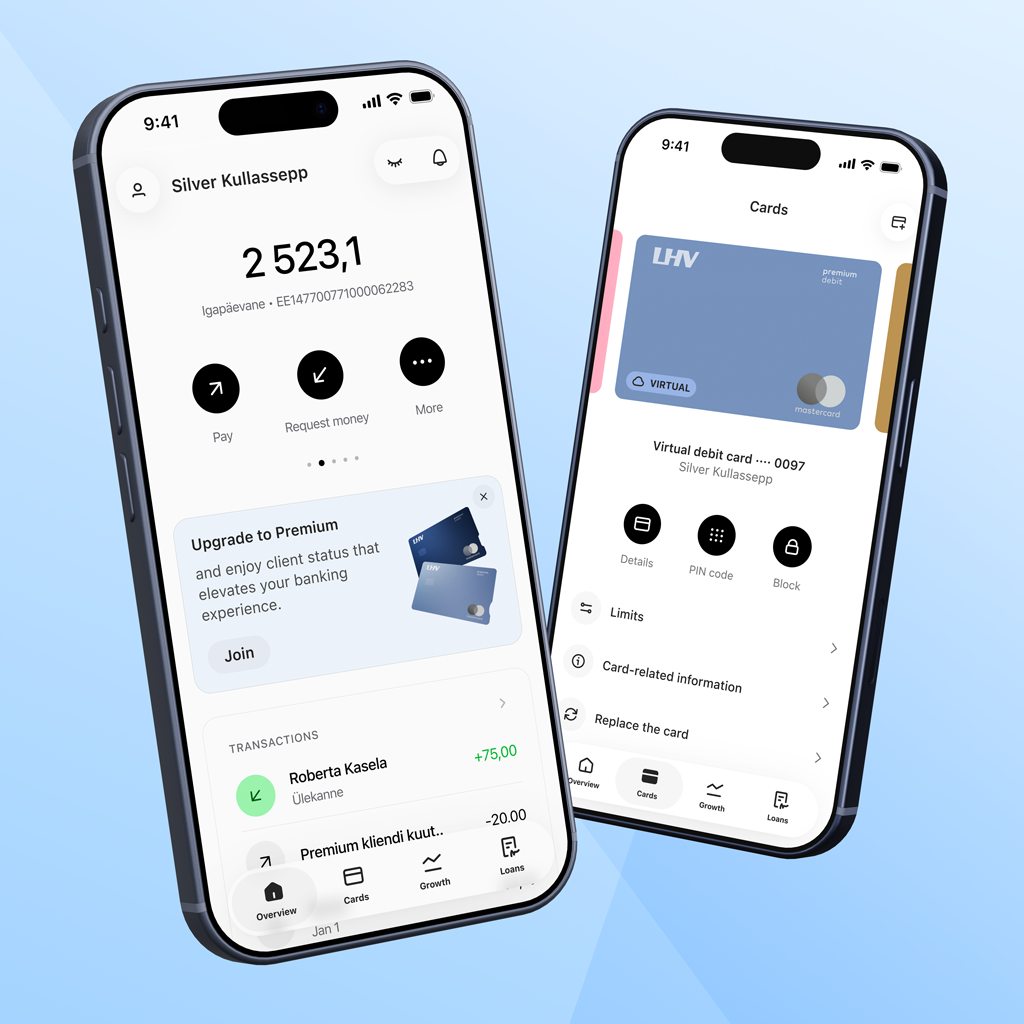
Cyber scams are becoming more sophisticated: three steps to protect your money
14. october 2025Fraudsters are becoming more sophisticated with each passing day, and playing on our trust. Experience from recent years shows that anyone can fall victim to fraud, regardless of age, education or profession.
Although there is probably no one in Estonia who has not heard of some cyber fraud case, criminals show no signs of slowing down. According to the Police and Border Guard Board, fraudsters caused more than EUR 5 million in losses in just the first five months of this year.
Fraudsters mostly use two tricks: they create a sense of urgency, making the victim feel that they must act immediately, and at the same time they try to convince the person not to tell anyone about what happened. The pressure to feel ashamed and keep the situation secret is one of the main warning signs of fraud.
‘Criminals are very skilled at creating a situation where it seems to the victim that acting quickly according to the criminal’s instructions is the only solution. At the same time, scammers build false credibility by presenting themselves as representatives of well-known companies or institutions,’ said Annika Goroško, the Head of Retail Banking at LHV Pank.
Do not give fraudsters a chance
- Protect your identity, including in digital form. Smart-ID and Mobile-ID codes are for your use only. Never share them with anyone else.
- Be attentive: always think about what data you are sharing, what you are confirming when you enter a PIN, and where the link you have been sent actually leads. Many scams succeed simply because people are not paying attention.
- Keep your banking information safe. Never share your bank card PINs or other banking data with anyone. The bank will never ask for them.
- Set low limits for your bank cards (including virtual cards) and payments. If you need to make a larger purchase, you can easily increase the limit in the mobile app.
- Keep your savings in a separate bank account. If your daily account has a smaller balance, the potential loss is lower if a fraudster gains access.
- For online shopping, prefer using a credit card, since it is not directly connected to your daily current account.
- Enable notifications for all transactions. This way you will immediately see if something suspicious happens in your accounts and can react quickly.
- When it comes to your money, always ask yourself: is the caller really who they claim to be? Does it make sense that I have to log into my bank to receive a package? Is it logical to transfer money to someone I have never met? Can an investment that promises to double my money really be true? And if it were, why is everyone not doing it already? Getting into the habit of asking yourself logical questions helps keep your thinking clear in emotional situations.
Fell victim to fraud? Report it immediately
Someone who has fallen victim to a scam may feel embarrassed or ashamed to talk about it. ‘It is completely human to feel bad in such a situation, but the most important thing is not to stay silent. Scammers exploit that sense of shame and demand silence from their victims,’ Annika Goroško explains.
Therefore, acting quickly and talking about your problem with trusted people is the only way to limit the damage and have a chance to get your money back.
- Report the fraud as soon as possible by calling LHV client support at 6 800 400. Outside working hours, our partner will assist you at the same number.
- Also notify the police, regardless of the amount you lost. The police accept fraud reports (including screenshots and call recordings) at kelmused@politsei.ee.
Filing a damage report with the police is necessary so that your money can be returned if the fraudster is caught. This may not happen immediately, but even after a year or two there could be a chance to get your money back. Additionally, every report helps the police track down criminals.
Banks also actively assist the police by sharing information. At LHV, we monitor fraud patterns daily and update our rules to protect your money even better. We educate our clients to recognise new scams and share tips on how to protect themselves and their assets, especially when shopping online.
All LHV bank cards include a secure card payment service, adding another layer of protection for online purchases. This means that after entering card details, you must confirm the purchase either in the online bank or with a security code sent to your mobile phone.
Fraudsters are becoming increasingly sophisticated and the visuals they create to communicate with victims online often look very convincing. That is why it is so important for people to recognise red flags and talk about them with friends and family.
‘Alertness is the best protection against fraudsters,’ Annika Goroško concludes. She praises LHV’s clients, as the bank has learned about many fake websites and scam campaigns thanks to reports from its clients.
So, if you are unsure whether something is genuine or suspect you are dealing with a scammer, always double-check everything and seek expert advice. It could save you from losing money to a criminal.
Useful links




